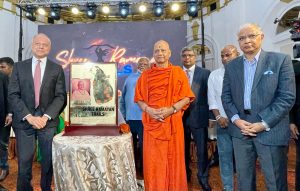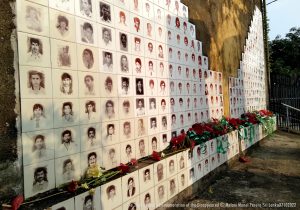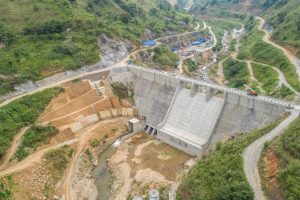Northern ‘Women headed families” forgotten by Reconciliation! – Melani Manel
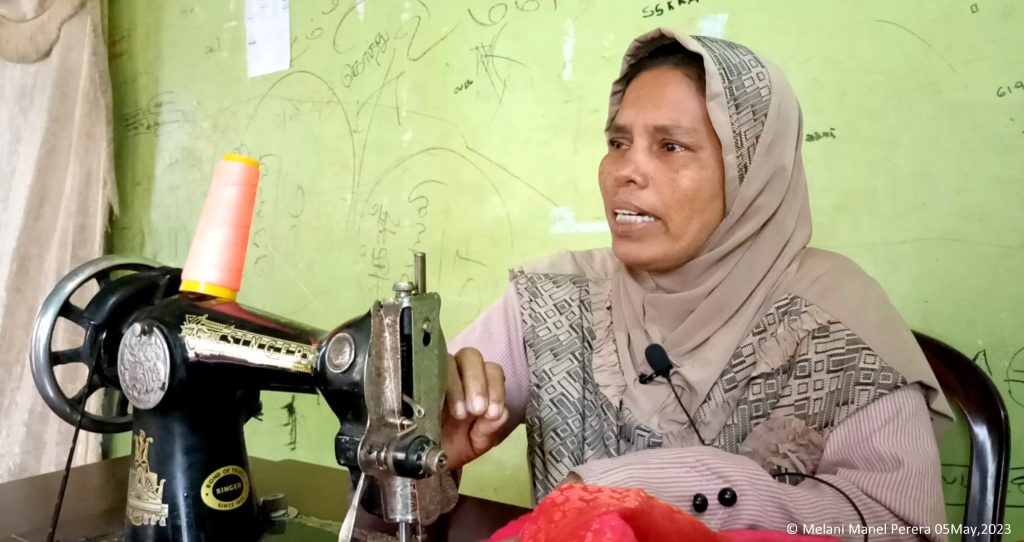
On the 18th of May, it will be 14 years since the end of the three-decades-long war in Sri Lanka. A group of people are preparing to celebrate a ‘war victory’ across the country. Another group of people have the most unpleasant experiences of war and are about to celebrate ‘their tears’ after losing everything. But in whatever celebration, Yet, the lives of Tamil and Sinhalese women in the North and East, who were pushed into being “Women headed” by the war, are still trapped in trauma, poverty, social violence, cultural and religious prejudices, and psychological tensions. There is no lasting justice nor proper mechanism to gain normal life for them, except temporary relief from the transitional justice process that came after many years of effort.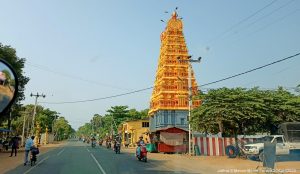
According to United Nations estimates, between 40,000 and 70,000 civilians in the north and east of Sri Lanka died in the final months of Sri Lanka’s protracted armed conflict, which was declared over on May 19, 2009, and another 150,000 civilians were killed in 30 years of government and separatist conflict.
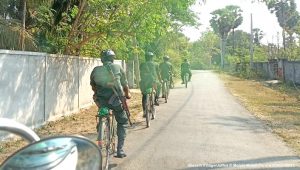 About 65,000 people, both men, and women, join the ranks of the “ missing”, while tens of thousands of other families have been dragged from their traditional homelands into the streets and labeled as ‘displaced’. Some still spend their lives in the ‘displacement camps’ established in the Jaffna Peninsula in dire frustration, deep exhaustion, and unbearable hopelessness. According to Nagamuttu Inbanayagam, Coordinator of the National Fisheries Solidarity Movement (NAFSO) of Jaffna District, there were 48 IDP camps in the north alone, and currently, there are 09 IDP camps in Jaffna alone such as Sabhapathi, Neelawan, Yogapuram etc.
About 65,000 people, both men, and women, join the ranks of the “ missing”, while tens of thousands of other families have been dragged from their traditional homelands into the streets and labeled as ‘displaced’. Some still spend their lives in the ‘displacement camps’ established in the Jaffna Peninsula in dire frustration, deep exhaustion, and unbearable hopelessness. According to Nagamuttu Inbanayagam, Coordinator of the National Fisheries Solidarity Movement (NAFSO) of Jaffna District, there were 48 IDP camps in the north alone, and currently, there are 09 IDP camps in Jaffna alone such as Sabhapathi, Neelawan, Yogapuram etc.
According to the then Deputy Minister of Women’s Affairs and Child Development M.L.A.M. Hezbollah, he had a list of 89,000 women who have lost their husbands, fathers or brothers, and have been subjected to the maximum punishment of war, and have received the seal of ‘Women headed families”. (to media September 29, 2010)
But not up-to-date, calculated in the year 2020 North and East Divisional Secretariat, according to official data, there are 67,000 female housewives in the North and 127,000 in the East. (As Jaffna 35,000, Mannar 5,000, Vavuniya 14,000, Mullaitivu 6,000, Kilinochchi 7,000, Batticaloa 51,000, Ampara 45,000 and Trincomalee 28,000.) (Data obtained 07 May 2023)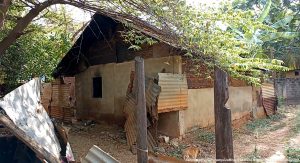
In a conversation with fifty Tamil, Sinhalese and Muslim “Women heads” living in Mannar, Mullaitivu, Kilinochchi, Trincomalee, and Kalmunai, their answer to our question about the relief received from the government was that the Samurdhi Aid is given monthly, but it is the same amount in the past and not sufficient as it is in the present due to the high rise in commodity prices. Relatively not enough at all. Apart from a “relief bag” given in the face of the covid epidemic and other disasters, there is no other helping hand or encouragement given by the government on a regular basis.
Even though they were given a cow, a goat, and a few chickens for livelihood, only a few people have succeeded in making a living. Some said that those livelihoods failed as they had to live without a proper place to keep their heads with several small children. The attitude of many of them is that they should have been provided with a more humane kind of help for those who started their lives struggling with great mental trauma.
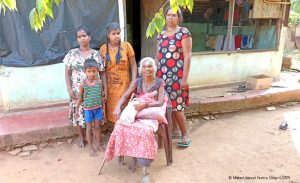 They said that the financial assistance given by non-governmental organizations, churches or institutions related to it and still being given from time to time barely helped them to live with their heads held high, and that there was no proper type of economic program or sustainable assistance to the children who are studying from the existing or current government.
They said that the financial assistance given by non-governmental organizations, churches or institutions related to it and still being given from time to time barely helped them to live with their heads held high, and that there was no proper type of economic program or sustainable assistance to the children who are studying from the existing or current government.
Some women who became “Women headed families” due to the abduction or killed of their husbands, fathers or brothers by the war are now elderly. Some died. Some have become disabled and mentally ill. Others are suffering from mental and physical stress, weaker than their age, and fighting a huge life battle to protect their children and grandchildren. “We don’t know when we will get relief from this oppression that has been forced on us” is imprinted in the minds of many women who has taken the whole responsibility of the family.
Currently living in Mannar, Arumanayagam Carmalittra (53) is a mother of 05 children. She has lost her husband and one son as a result of the war. Carmalittra’s husband, who had been working as a teacher due to the inability to maintain external contact during the war and the failure of the health services and hospital systems, contracted a fever and died three days later without being able to seek medical help. At that time, the husband was 45 and Carmelittra was 33, and she was left with the household responsibility of raising two girls and three boys, ages 14, 12, 10, 8, and 6.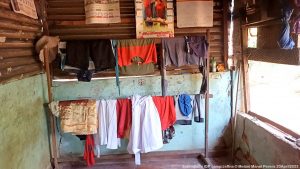
She was not entitled to any support from the government due to the pension of her husband who was a teacher who served for 10 years and due to the insufficient salary, she had to struggle to make ends meet with five children.
In 2008, one of Carmelittra’s sons went missing while traveling from Paisalai to Mulankavil to visit his grandmother and relatives. Complaints were made to the police and the Human Rights Commission, but no information has been received till today.
Najima (49)who lives in Kalmunai in the Eastern Provinceis a woman who sacrificed her life to a very unfortunate fate due to the civil war. The disappearance of his father, who went to sell goats and did not return during the fierce fighting between the LTTE and the Indian Army in the Eastern Province, is still a mystery. The search was futile and her father was just one more person added to the list of missing persons. Najima’s mother, who could not bear her father’s disappearance and was deeply shocked, became seriously ill and became mentally ill, unable to raise the family’s children. Najima had to bear the burden of the family and in time, after her mother passed away, she was forced to marry a man 30 years older than her due to the harsh effects of war.
Her still wet eyes tell her conscience that the marriage and the disappearance of her father only intensified the psychological distress she had been suffering until now. Najima got one daughter from her old husband and the daughter will appear for the (G.C.E )General Examination next year. Her journey to school is not a smooth and gentle one, but a very tough one in the middle of severe economic difficulties. Najima’s old husband has recently died, and she lives with her daughter, earning a meager income from sewing clothes.
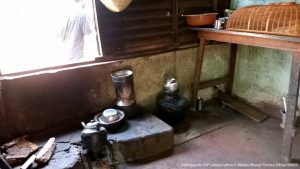 Najeema is of the opinion that, “rather than occasional assistance, if a systematic program is presented to maintain the education of the children of the families of “Women headed” without any hindrance, it would be much more valuable.
Najeema is of the opinion that, “rather than occasional assistance, if a systematic program is presented to maintain the education of the children of the families of “Women headed” without any hindrance, it would be much more valuable.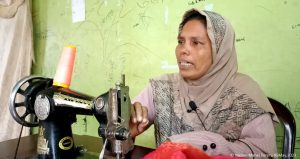
A woman, th vice president of an organization that works for women who have been working in the Eastern Province against this perpetuating injustice, who asked not to be identified, said that based on the attitudes and religious, cultural restrictions of the Muslim community, the oppression of Muslim women who have become widowed housewives, the poverty and the injustices they face are not discussed openly nor influenced for solutions. There is no fair social space for women.
Vincent de Paul Anne Rita, 49 –year old mother of six children, lives in Valaiippadu village of Poonagari Divisional Secretariat. She becomes the head of the family, after being displaced many times since 2008, due to a shell attack in the bunker where they were living on February 02, 2009 in the Mullaitivu Vishwamadu area.
Her husband, who was hospitalized with painful and severe injuries, closed his eyes on February 05 after a life-and-death battle, and despite owning a house and a door, she lost her birth home due to a war that was not theirs and had to bury her husband’s dead body in the hospital.
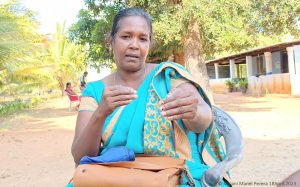 Later, she was also wounded in the chest by the gunshots fired while they were traveling along with her six children to seek protection through Pudumathalan.
Later, she was also wounded in the chest by the gunshots fired while they were traveling along with her six children to seek protection through Pudumathalan.
Later, they lived in the Ananda Coomaraswamy camp and went back to their Valaipadu village on December 22, 2009 and started a hard life under a temporal hut. Catholic Church’s Jaffna Caritas Hudec Institute had rebuilt its own house as well as other people’s houses and the government at that time, 35,000 rupees each was given as living allowance through the Divisional Secretariat office. Initially, financial assistance was provided several times.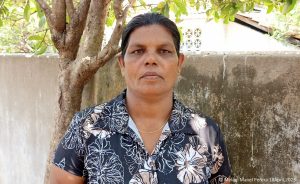
She received a house as well as a boat and an engine from Caritas Hudec , goats from Zowa Organization and 25,000 rupees from NAFSO for the dried fish business. She managed all financial helps carefully and managed to raise her six children in a good manner. But the main challenge she is currently facing is to support her four children who are studying in the midst of the current economic crisis.
Anne Rita, the head of the family is living in Kilinochchi, has the challenge of getting her four children, who are studying in grades 10, O/L, and A/L classes, to pass through education, despite occasional help from the school; This is her one and only dream.
END.



